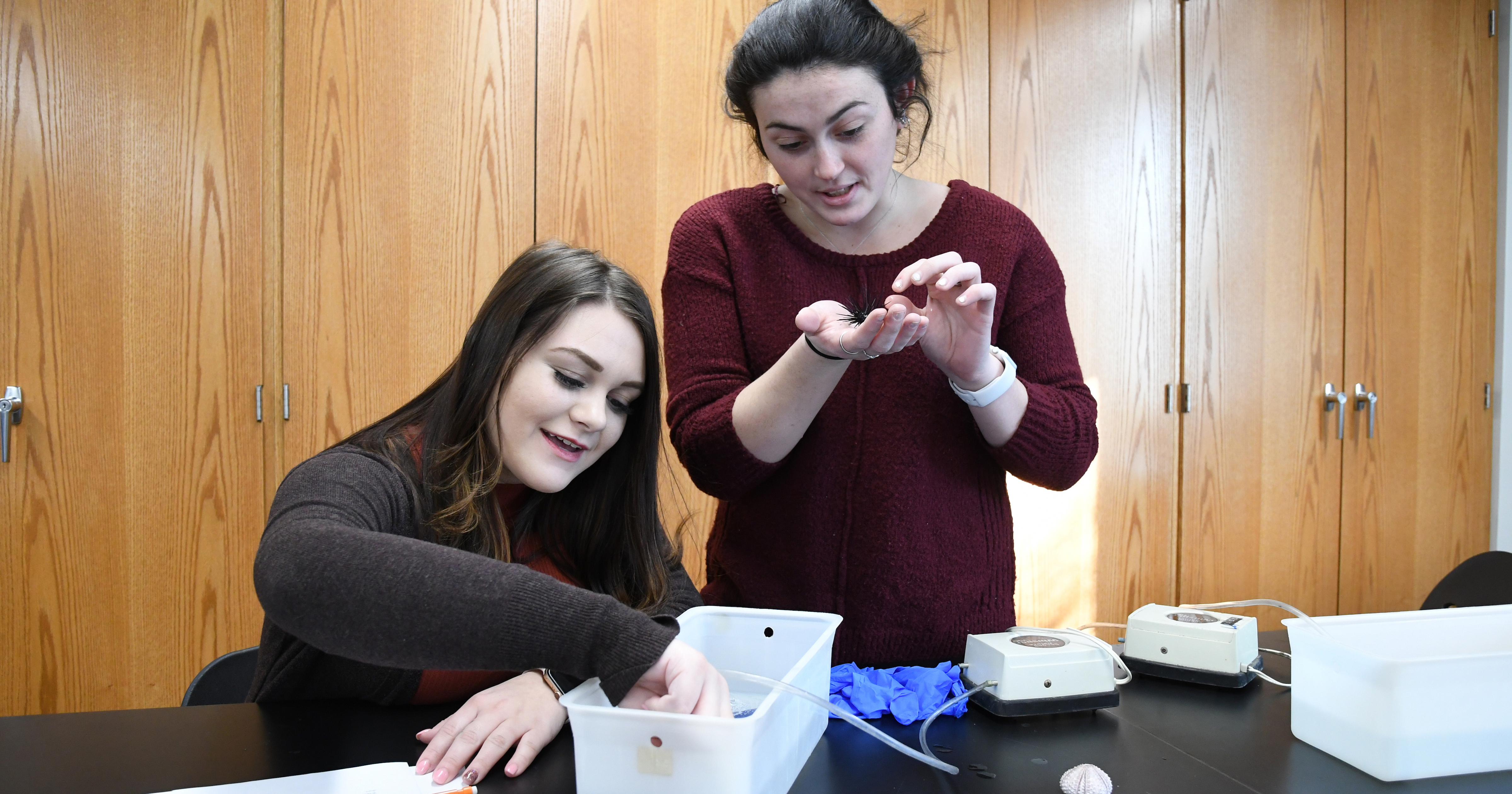Tuesday, Jul 7, 2020
Project aims to increase data literacy among undergraduates
by Rachel Stengel '14, '20
Rider University received a $300,000 grant from the National Science Foundation. The grant, Improving Undergraduate Scientific Explanations: Exploring the Role of Data Literacy Skills in Scientific Reasoning, will support a project that aims to reinforce students' scientific reasoning by enhancing their data literacy skills.
"We want to help undergraduate students build their data literacy and reasoning skills with the ultimate goal of enhancing their ability to construct scientifically accurate explanations," says Dr. Kathy Browne, the grant principle investigator and chairperson of the Department of Geological, Environmental & Marine Sciences (GEMS).
The grant is the result of a collaboration between Browne, Dr. Gabriela Smalley, associate professor of GEMS, Dr. Andrea Drewes, assistant professor in the Department of Graduate Education, Leadership, and Counseling, and Sage Lichtenwalner, a research programmer at Rutgers University who specializes in translating research data into products that can be used by K-16 students, teachers and the general public.
Fostering students' scientific reasoning skills has been a focus within the Department of Geological, Environmental & Marine Sciences. With the grant, Browne and Smalley will work with Drewes and Lichtenwalner this fall to review the current methods used in oceanography classes and revise them. Drewes will also lead the research design to evaluate the effectiveness of those methods.
"Students will be guided through a sequence of deliberate steps to aid them in recognizing and describing patterns in data and guide them to use such data as evidence to draw and support conclusions about the phenomena under investigation," Browne says.
The final strategies will be tested in introductory oceanography courses beginning next spring using existing data sets available including those from the Nation Science Foundation-funded Ocean Observatories Initiative (OOI). Earlier use of some of the strategies have shown improved student learning, according to Browne.
“Enhancing these efforts should only be more beneficial to students,” she says.
Lichtenwalner will assist the team with evaluating the results. He has worked with the OOI Data Explorations program since its inception. The program provides free, interactive activities using cutting-edge research datasets available from the OOI for undergraduate students in introductory oceanography classes.
"This project is a testament to our collective commitment to quality science and STEM education for Rider students," says Drewes. "By leveraging experts in both the College of Education and Human Services and the College of Liberal Arts and Sciences, students will experience instructional strategies designed specifically to help expand their scientific reasoning and data literacy abilities."
The grant team hopes the project will provide other educators with effective strategies for teaching scientific reasoning skills.
"The results of this work will be directly shared with the existing OOI community of educators who teach similar oceanography courses and can apply the strategies found most effective for undergraduate learners in introductory science courses," Smalley says. "The results are also expected to be applicable across science disciplines and could enhance a broad range of undergraduate courses."

